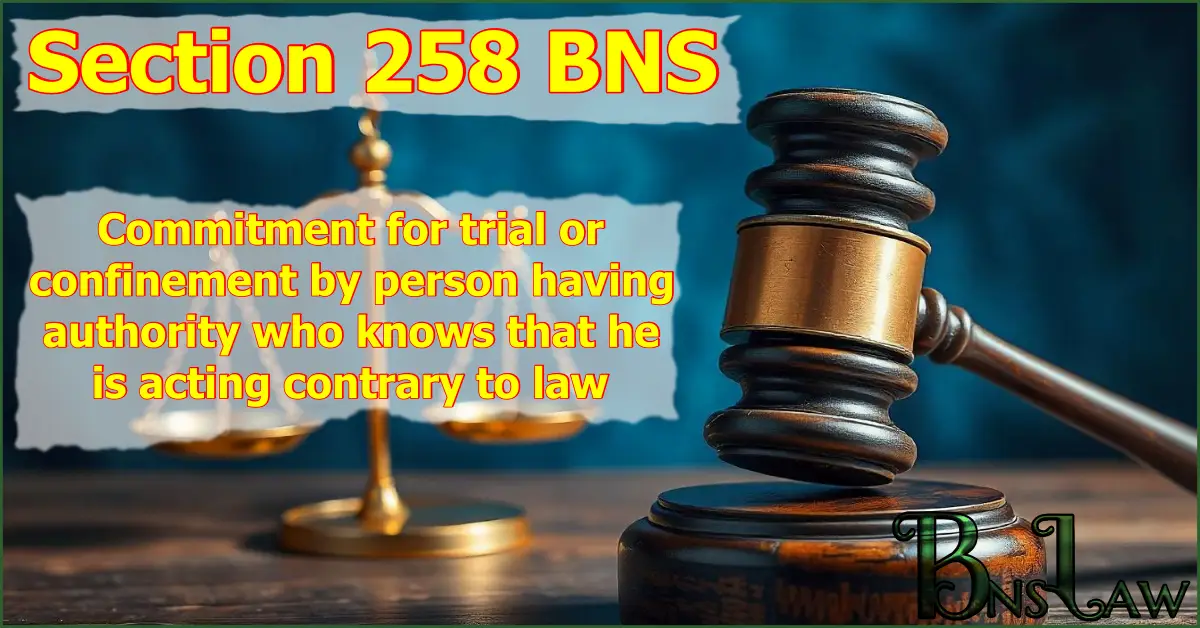Section 258 BNS | BNS 258
Whoever, being in any office which gives him legal authority to commit persons for trial or to confinement, or to keep persons in confinement, corruptly or maliciously commits any person for trial or to confinement, or keeps any person in confinement, in the exercise of that authority knowing that in so doing he is acting contrary to law, shall be punished with imprisonment of either description for a term which may extend to seven years, or with fine, or with both.
READ OTHER SECTIONS OF CHAPTER XIV — OF FALSE EVIDENCE AND OFFENCES AGAINST PUBLIC JUSTICE
FAQs of BNS Section 258
-
258 BNS punishment and fine
Punishment and fine under Section 258 of the BNS: Imprisonment for 7 years, or fine, or both.
-
258 BNS cognizable or not
The offence under Section 258 of the BNS is non-cognizable.
-
258 BNS bailable or not
The offence under Section 258 of the BNS is bailable.
-
258 BNS trial court
Offence specified in Section 258 of the BNS is triable by the Magistrate of the first class.
Important Points
- Cognizable Offences: These are offences where a police officer can arrest a person without a warrant.
- Non-Cognizable Offences: These are offences where a police officer cannot arrest a person without a warrant.
- Bailable Offences: These are offences where the accused can get bail from the police station itself. All bailable offences are listed in the First Schedule of the Bharatiya Nagarik Suraksha Sanhita (BNSS).
- Non-Bailable Offences: Offences in which bail is not granted directly from the police station but after hearing the case in the court, the judge decides when bail will be granted. All non-bailable offences are listed in the first schedule of the Bharatiya Nagarik Suraksha Sanhita (BNSS).
- In the above FAQ, “trial court” means the court that has jurisdiction to try the offence.
- In the above FAQ, the expression “Magistrate of the first class” and “Any Magistrate” does not include Executive Magistrates.
Read other Sections of the BNS
Reference Link: New Criminal Laws (BNS), Ministry of Home Affairs







